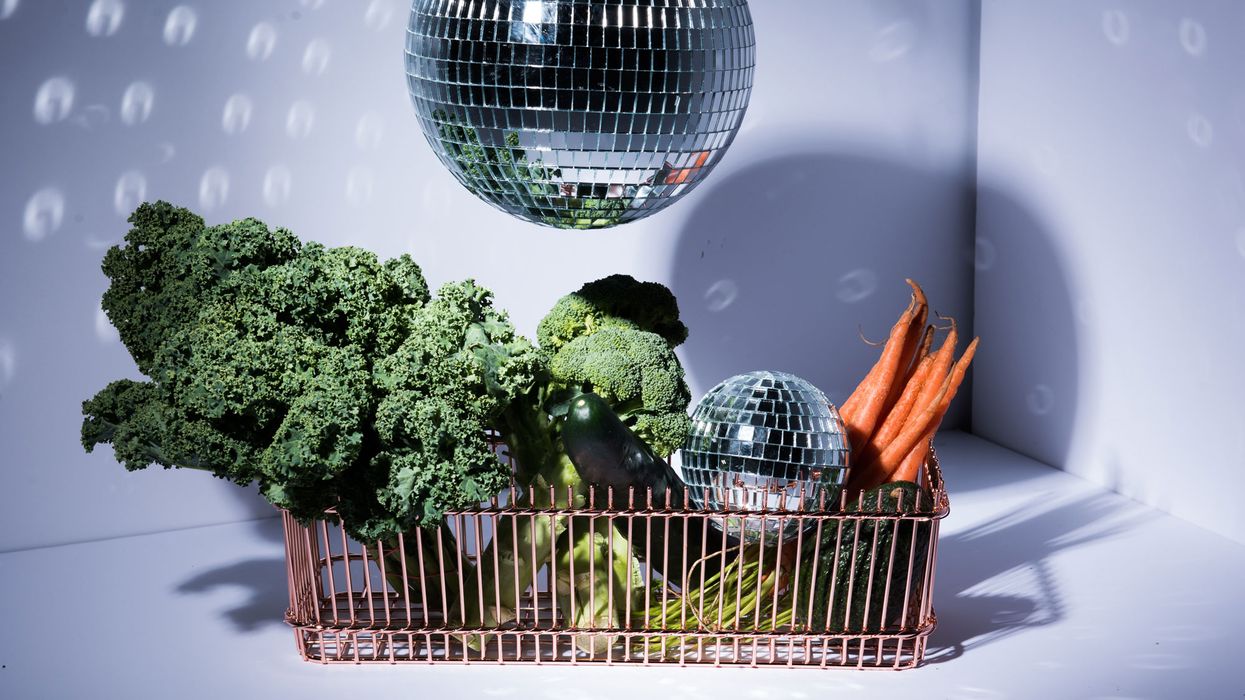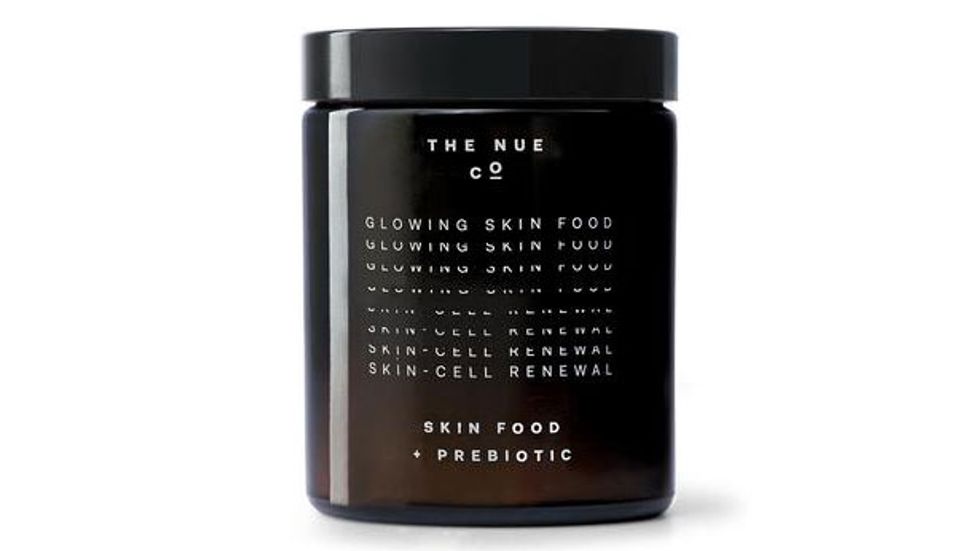
24 August, 2018
10 November, 2021
We’re just as likely as the next person to feel confused over the new concoctions and information the health and wellness worlds are feeding us (y’all remember the debate between MCT oil and coconut oil?). So, as we’ve heard more and more about prebiotics (not to be confused with probiotics), we figured it was time to get the 411 on them.
You see, we know probiotics well. They’re one of the most important bacteria for maintaining the health of your gut, and they help protect your body from infections and colds by regulating their numbers inside your body. They also work to reduce mild depression, prevent development of allergies, ward off diarrhea, and are vital when taking antibiotics, since they replace the good bacteria in your intestinal tract that antibiotics kill. But what happens when you add prebiotics to the mix? Jules Miller, founder of The Nue Co., and The Nue Co.’s medical advisor, Dr. Tiffany Lester, answered all the questions we had about these new-ish supplements, while also clarifying how they differ from our trusty probiotics.
You see, we know probiotics well. They’re one of the most important bacteria for maintaining the health of your gut, and they help protect your body from infections and colds by regulating their numbers inside your body. They also work to reduce mild depression, prevent development of allergies, ward off diarrhea, and are vital when taking antibiotics, since they replace the good bacteria in your intestinal tract that antibiotics kill. But what happens when you add prebiotics to the mix? Jules Miller, founder of The Nue Co., and The Nue Co.’s medical advisor, Dr. Tiffany Lester, answered all the questions we had about these new-ish supplements, while also clarifying how they differ from our trusty probiotics.
Prebiotics vs. Probiotics
Prebiotics: “Put simply, prebiotics feed the existing good bacteria in your gut and encourage it to thrive. [They] act like a fertiliser that promotes growth of the good bacteria already in your gut. They are available from plants such as chicory, asparagus, and yams,” Miller says.
Dr. Lester adds that “prebiotics are just as essential [as probiotics] and are the fuel for the beneficial bacteria. This includes not only supplements, but fermented foods, like kimchi and kombucha. The benefits of prebiotics are vast; they lower obesity risk, support stress response, and lower inflammation.”
Probiotics: “Probiotics are live bacteria delivered to your gut—they help to repopulate and rebalance your microbiome. Live probiotics are readily available in fermented products such as sauerkraut and kefir,” Miller says.
In other words, probiotics are good bacteria that will continue to grow in your gut, rebalancing your body. Prebiotics do their part by supporting said bacteria and helping it grow. As we mentioned before, probiotics are the protectors of your body, so you can consider prebiotics as their second-in-command.
The Best Way to Take ’Em
“Prebiotics are food for the good bacteria that we consume, [so they’re] best taken with a meal,” says Dr. Lester. “Preferably [take them] in the form of a supplement powder.” Miller let us know that you can also get your prebiotics naturally from food. “Prebiotics are naturally occurring in foods like chicory root, jerusalem artichoke, dandelion greens, garlic, leeks, onion, bananas, and asparagus,” she says, adding, “prebiotics are a specialized plant fiber that acts as fertilizer for probiotics.” Dr. Lester mentions that she “counsels patients to add one of these seasonal foods to their daily diet.”
So what about when we take probiotics? “Taking probiotics at any time of day is better than none at all,” Dr. Lester explains. “The best time to take probiotics is before bedtime. Not only is our digestion resting, which promotes healing, it also aids in better quality sleep by increasing tryptophan and melatonin.”
Let’s Talk Dosage
Let’s be real—while we’re told that certain supplements are good for us, it’s hard to know which ones to purchase since there are so many available. So let’s start with the OG: probiotics. “In an otherwise healthy individual, traditionally a 50 billion CFU daily broad-spectrum probiotic that contains both Lactobacillus and Bifidobacterium strains has been considered the dose required to be beneficial to your body by the time it reaches your gut,” Dr. Lester says. “However, a spore-based SBO (soil based organism) probiotic such as Lactospore is activated upon coming into contact with stomach acid. Therefore, a 15 billion strain count of this variety is sufficient.” And when it comes to prebiotics? “For prebiotics, it often depends on tolerance and form, so I recommend to start slowly and titrate up if taking a supplement.”
Listen to Your Body
Like anything else, be mindful of how you introduce this new supplement to your body. “If you’re not used to consuming prebiotic fiber, too much at once can be hard for your body to digest,” Miller explains. Consuming too much fiber can lead to bloating or abdominal pain (neither of which we want), so many people ingest prebiotics exclusively in powder form. “By using a powder, you’re able to control the amount of prebiotic fiber you’re ingesting.” Thank you, Miller.
The Benefits
“Taking a prebiotic and probiotic daily is an easy step to incorporate into your day. Aside from easier digestion, people also report higher energy levels, better concentration, and glowing skin! Taking a prebiotic and a probiotic daily is like taking a multivitamin for your gut. Research suggests that using prebiotics, as well as [having] a diet containing soluble and insoluble fiber, helps probiotics to populate and flourish in the gut.” Dr. Lester also adds, “Some may need to start slow and titrate up if they notice a large increase in gassiness. Also, individuals who have been diagnosed with SIBO (small intestinal bowel overgrowth) should consult their doctor on taking pre- or probiotics.”
[Editor’s Note: As ever, we are not doctors or medical know-it-alls. And everybody is different, so make sure to check with a doctor before trying anything new.]
Want more stories like this?
6 Things You Probably Don’t Know About Probiotics
Everything You Need to Know About Gut Health
6 Healthy Habits That Cause Bloat





